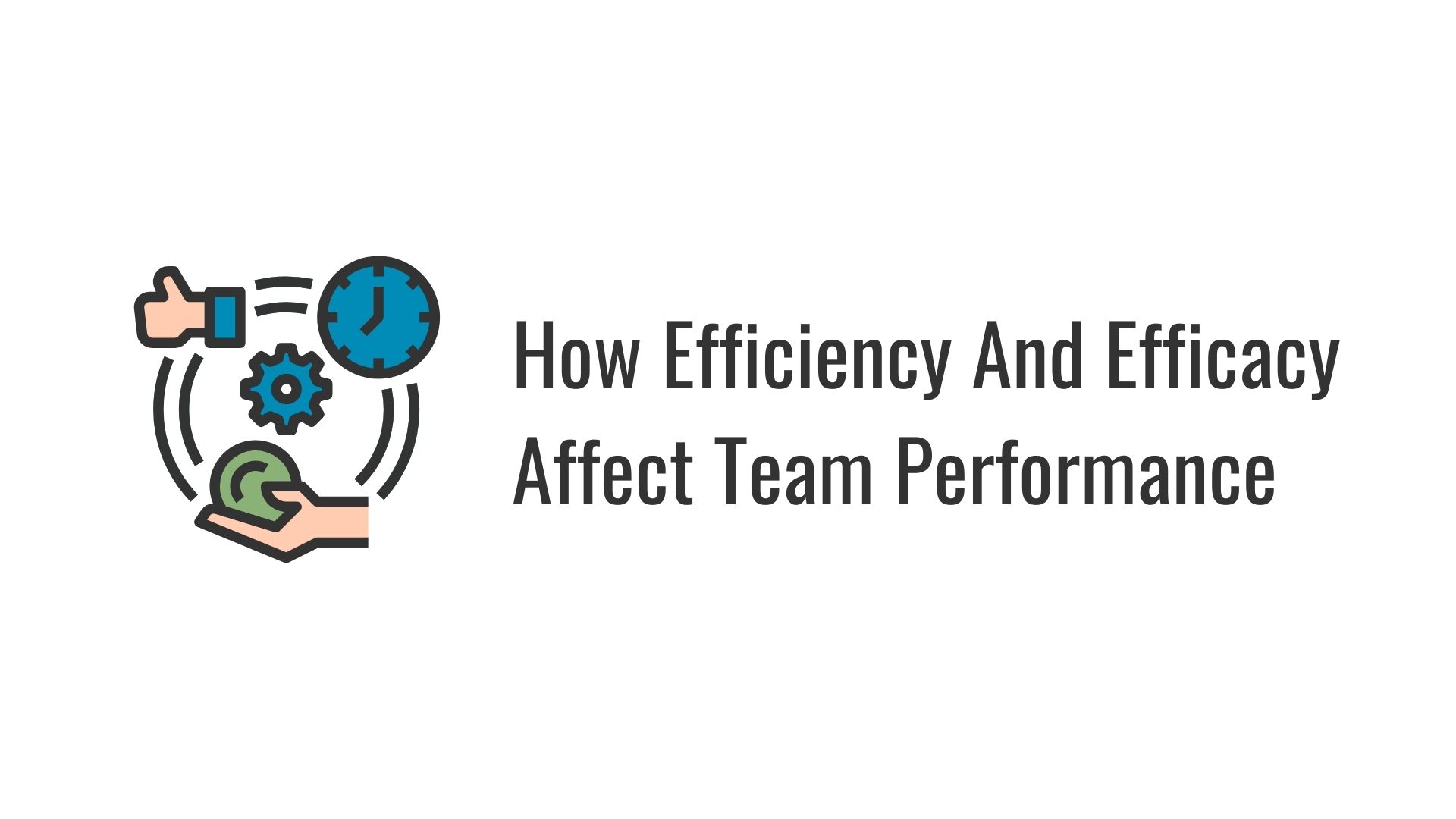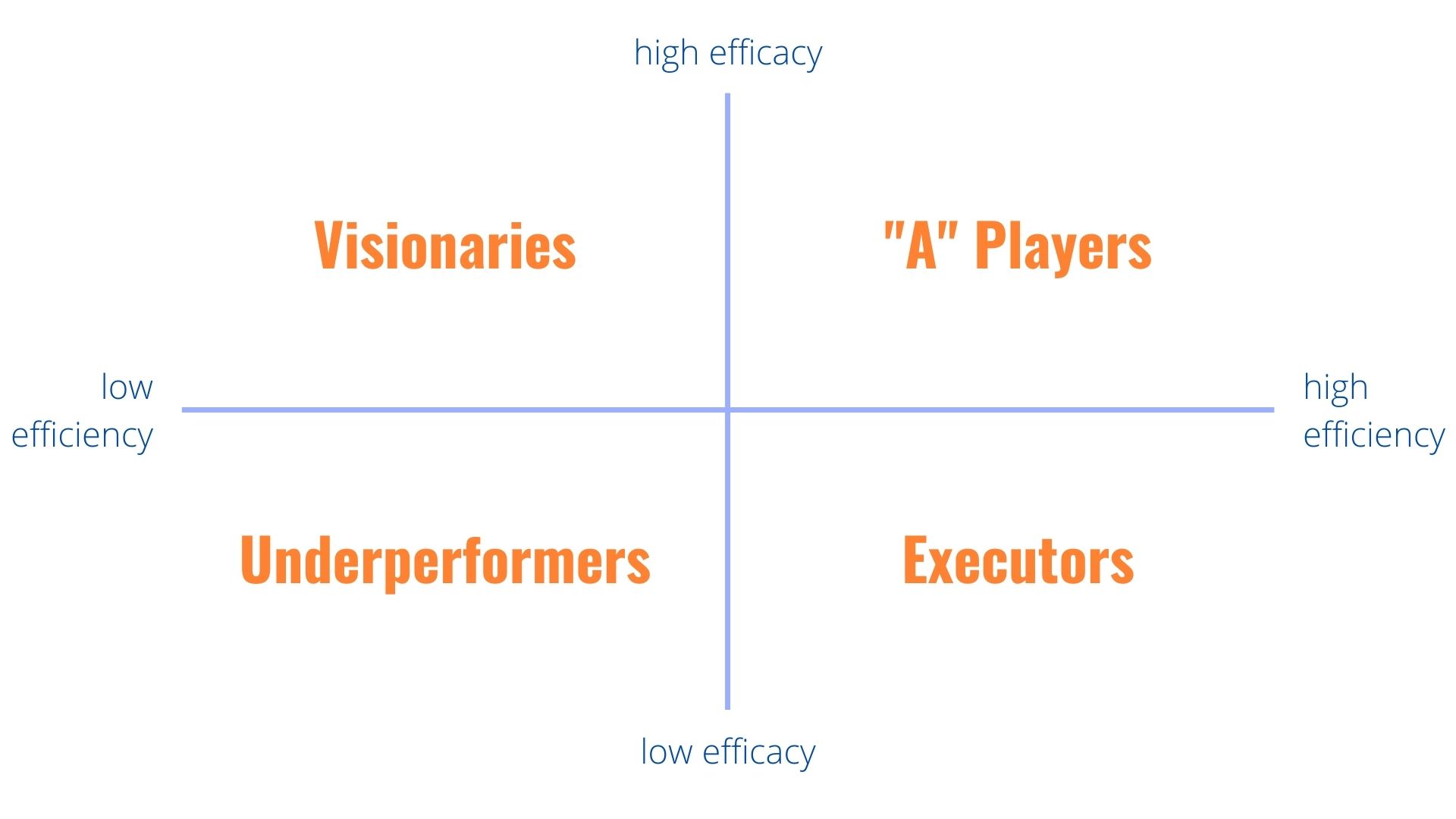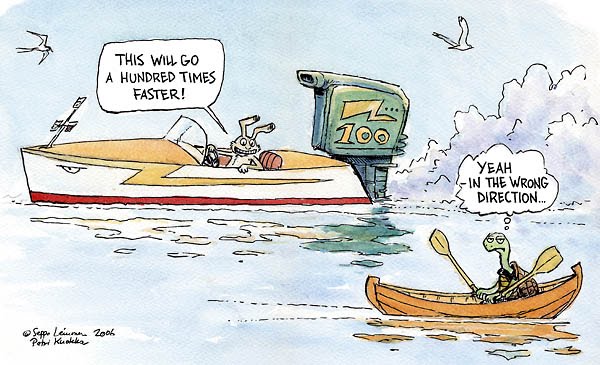
Efficiency. It is sought after by many people and companies. You might have heard, watched, read, talked, or thought about it recently.
And that is understandable. Efficiency defines the ability to get the best possible result with the minimum waste of energy and resources. It directly affects ones own (or a company’s) time and money.
However, there is another concept that is not that popular and discussed, but that defines far better the ability of a person or team to achieve its goals, and that is efficacy.
Doing Things Right Vs. Doing The Right Things
Efficiency is all about doing a thing right, about performing an action in the best possible way with little to no waste of energy and resources.
However, doing a thing right does not necessarily mean that it is the right thing to do to achieve the desired goal.
Therefore, a person or team can be efficient and still fail to achieve their goal because they lack efficacy (effectiveness).
To put it in other words, efficacy is about results, while efficiency is about the way actions are performed and how suboptimal they are.
For instance, you can have good efficacy but poor efficiency, meaning you got the desired result, but it was costly or wasteful. Or, you can have good efficiency but poor effectiveness, meaning your actions are cost-efficient and not wasteful, but the final result is only moderately effective.1
Sadly, the latter is more common than the former. This is somehow understandable since efficacy requires a certain degree of abstraction and viewing things holistically. But at the same time, poor efficacy leads to underperformance in achieving goals.
The Quadrants Of Performance
If to put things in perspective, there are four types of people.

Those who are neither efficient nor effective are Underperformers. Their activity is not optimal, and they spend a lot of time and resources and can easily wander away from the preset goal.
Moving on to the bottom right side are Executors. These professionals know their job, and they do it efficiently, timely, and with little to no waste of time and other resources.
Going back to the top left side are Visionaries, who have a good and sometimes intuitive understanding of the necessary direction. Such people make up for good employees in strategic roles — they know what needs to be achieved but might not know the best route to take.
Finally, the “A” Players are people who take navigating the problem-solving landscape like a duck takes to water. They know the right thing to do and the right way to do it.
Conclusion
Efficiency and efficacy are closely related yet distinct in their own way. Usually, on a team, you need both people who are efficient and can do things without wasting energy and resources, as well as people who are effective and know what the right things to focus on at any given time are.
The good news is that both these traits can be improved through learning and gaining experience:
- efficiency can be trained through deliberate practice of an action;
- efficacy requires a better understanding of a given domain and analyzing the cause and effect various activities have on the desired goal;
Finally, here is an excellent panel cartoon that illustrates the difference between efficiency and efficacy.

Source: ulaginoli.com